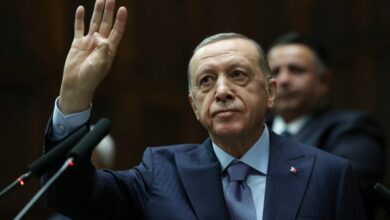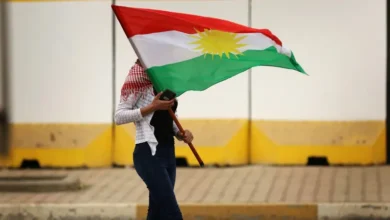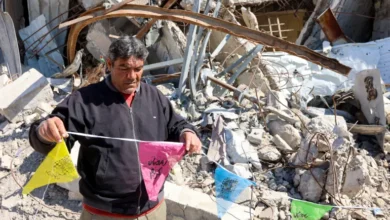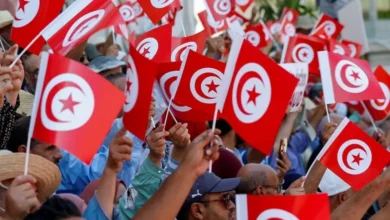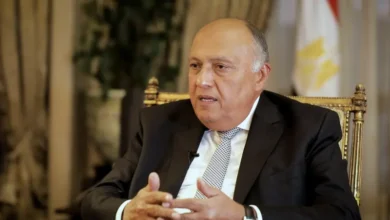Palestinian Diplomacy: Origins and Development
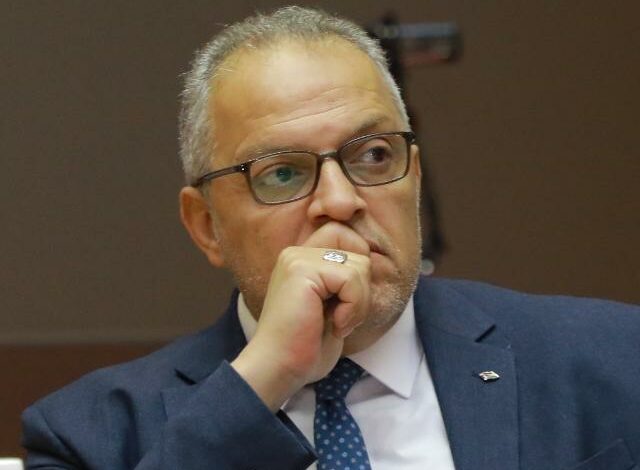
Abdal Karim Ewaida
Palestinian diplomacy can be considered to have emerged in the late 1960s. Following the proclamation of the Palestine Liberation Organization (PLO) at the first Palestinian Arab Congress, held in Jerusalem on May 28, 1964, and in response to a decision of the Arab Summit in Cairo that same year, Ahmed Shukeiri was elected chairman of the PLO. The organization then decided to open seven offices in several countries, including Algeria, Lebanon, Syria, and Egypt. Shukeiri resigned after the 1967 Arab Summit in Khartoum, better known as the “Three No’s” Conference. Yahya Hammouda succeeded him until 1969, and then President Yasser Arafat took over, a position he held until 2004.
However, historically, it must be said that this was preceded by the creation of the Fatah movement, founded in the late 1950s and officially launched in 1965 by establishing several offices in various countries, including Algeria in 1962, under different names. Through these offices, and under the leadership of the late Khalil al-Wazir (Abu Jihad), Fatah not only forged a close relationship with the Algerian National Liberation Front, but also cultivated significant and specific ties with most liberation movements in Africa, Asia, and Latin America. These movements subsequently led many countries to independence, and their leaders became heads of state. Fatah maintained important relations with them in various fields, which facilitated the opening of PLO offices after the late President Yasser Arafat, leader of Fatah and a pillar of the PLO, assumed its leadership in 1969, as previously mentioned.
But the major shift that occurred in the PLO’s program at the 1974 Rabat Conference, then known as the Ten-Point or Step-by-Step Program, helped the Organization to grow and expand, opening offices worldwide under various names (liaison offices and press offices). It thus benefited from the relationships previously established by Fatah, whose leaders took charge of managing the PLO offices from the outset. It is worth mentioning that the first Fatah office for the PLO in Western Europe opened in France in October 1975, under the leadership of Izzeldin Kalak, who succeeded Mahmoud al-Hamshari, Fatah’s representative in Paris, assassinated in 1973. Subsequently, the PLO continued to open offices wherever possible to achieve a fundamental objective: to publicize the suffering of the Palestinian people and the atrocities they endure, to disseminate the Palestinian narrative worldwide, and to assert Palestine’s presence on the international stage. Despite limited funding and experience, these offices became the core of Palestinian diplomatic activity. Despite all the restrictions that, under various pretexts, limited their operations, they continued their work, drawing on the expertise of those appointed to head them in different fields. The intellectual worked in the field of cultural diplomacy, the economist in economic diplomacy, and so on. Over time, they acquired the necessary experience through concrete and diverse diplomatic practice. The Political Department of the Palestine Liberation Organization, headed by the late Farouk Kaddoumi, formed the core of the Ministry of Foreign Affairs, overseeing and directing all diplomatic activity. This core achieved numerous diplomatic victories over the years and successfully resisted, and even defeated, Zionist rhetoric and propaganda on several occasions, particularly after Israel assassinated several PLO bureau chiefs worldwide, notably in Europe. At the time, Israel sought to prevent Palestinian expansion in order to impose its narrative by exploiting the guilt complex that arose in Europe after World War II and the atrocities committed against Jews.
However, the PLO was aware of this and attached great importance to diplomatic work, relying on it to explain occupation’s actions against the Palestinian people and consolidate the Palestinian narrative, on the one hand, and to justify the armed struggle of the Palestinian revolution and rally support for its cause, on the other. In addition, it constantly sought to build strong relations with progressive parties and movements around the world, even going so far as to support them in their rise to power.
The work of these offices evolved with the shift in Palestinian strategy following Algeria’s declaration of independence in 1988, with most of them being transformed into embassies, particularly in countries that then recognized Palestine. The number of Palestinian ambassadors reached seventy, spread around the world.
The post of Minister of Foreign Affairs was created and entrusted to Farouk Kaddoumi after the declaration of independence. With the signing of the Oslo Accords and the establishment of the Palestinian Authority, the decision-making center for the embassies and offices affiliated with the Palestine Liberation Organization was transferred to Palestine. Palestinian diplomatic activity began to be conducted by the Ministry of Planning and International Cooperation, which initially served as the Ministry of Foreign Affairs for Palestine. This activity was skillfully led by Dr. Nabil Shaath, a member of the Fatah Central Committee (with whom I had the honor of working), who was in direct contact with the late President Yasser Arafat. Kaddoumi had opposed the Oslo Accords and refused to return to Palestine under their terms. Consequently, President Yasser Arafat himself assumed control of foreign policy. This situation led to a duplication of diplomatic activities and a power struggle between the Political Department and the Ministry of Planning and International Cooperation until 2003, when the first Ministry of Foreign Affairs of the State of Palestine was established, headed at the time by Dr. Nabil Shaath. During this period, the Ministry of Planning and International Cooperation was restructured and renamed to better align with the requirements of the Ministry of Foreign Affairs and the activities of the Palestinian Authority, which was officially recognized by many countries. With the appointment of Dr. Nasser Al-Qudwa as Minister of Foreign Affairs, the first law concerning the Palestinian diplomatic corps was promulgated in 2005. This law defined the foundations and working mechanisms, particularly regarding organization, finances, and geographical distribution. It was also at this time that the system of non-resident ambassadors was adopted as a tool for international diplomatic outreach. New embassies were opened, or PLO offices were converted into embassies in countries recognizing Palestine. As a result, the number of Palestinian embassies and missions worldwide exceeded one hundred, with non-resident representation in almost every other country, which is considered significant diplomatic representation for a state under occupation.
Diplomatic activities were greatly disrupted by Hamas’s rise to power and the appointment of Mahmoud Al-Zahar as Foreign Minister, whose political agenda broke with decades of progress. Fortunately, this period ended quickly with the formation of a national unity government. Ziad Abu Amr briefly headed the Ministry of Foreign Affairs, followed by Salam Fayyad, who held the position concurrently with that of Prime Minister. Dr. Riyad al-Maliki then held the post for over fifteen years, a record.
The diplomatic corps suffered from a lack of resources and limited , a situation that persists. However, it has managed to overcome these obstacles and improve its performance thanks to the emergence of a new generation of young diplomats with excellent communication skills and a diverse range of tools. The role and status of women have also been strengthened throughout the history of the diplomatic corps, with women holding positions of responsibility within this field.
A number of female diplomats took the lead as ambassadors of the State of Palestine, reaching a total of 18 ambassadors in major influential countries such as France, Germany, Italy, Sweden, Norway, Portugal, and Ireland, as well as in Africa (Senegal, Zimbabwe, and South Africa), Asia, and Latin America. Their role has grown to the point that one woman, Ms. Amal Jadou Shakaa, held the position of Secretary-General of the Ministry of Foreign Affairs. Ms. Varsin Aghabekian Shahin is now the first woman to hold the position of Minister of Foreign Affairs of the State of Palestine and the fifth Arab woman to hold this important position in her country, following Naha Mint Mouknass and Vatma Vall Mint Soueina (Mauritania), Asma Mohamed Abdalla (Sudan), and Najla El Mangoush (Libya). All these appointments have strengthened Palestine’s international recognition for its commitment to women and the promotion of their role in political life, where they have held various ministerial positions. The new generation of diplomats has successfully leveraged social media and fully exploited technology to meet challenges.
Palestinian diplomacy now encompasses two generations of diplomats: on the one hand, seasoned experts with extensive experience in diplomatic work, particularly within international organizations; and on the other hand, a younger generation distinguished by its use of modern tools and its recognized expertise in various diplomatic, cultural, economic, and other fields. This situation reinforces the concept of generational succession and smooth transition between the two, ensuring the vitality of this system.
I would like to emphasize that this significant development marks a true turning point, moving from the revolutionary diplomacy led by the late Yasser Arafat to the state diplomacy professionally steered by President Mahmoud Abbas. This change is part of the vision adopted by the State of Palestine in its pursuit of peace and its ongoing efforts to establish the foundations of the Palestinian state: institutions, organizational structures, and legislation. This will enable the State to fully and confidently assume its responsibilities once the occupation is over and the dream of an independent state is realized. However, many deficiencies persist in several areas, including the selection process, geographical distribution, harmonization of messaging, and numerous administrative and oversight issues. Considerable work remains to be done in terms of development and modernization. This requires a revision of the Diplomatic Corps Law, which is over 20 years old. It is imperative to work on updating it so that the law serves as the primary framework for all aspects of diplomatic work, thereby ensuring accountability. This accountability is essential for evaluation and reform, in line with the President’s vision for reforming the Palestinian Authority. I am confident, however, that we are on the right path.
I conclude by saying that all employees of the Ministry of Foreign Affairs, including administrators, consuls, and diplomats, who have made the ultimate sacrifice for this cause, have contributed effectively to this objective and continue to work diligently to implement this vision in order to elevate the Palestinian diplomatic institution to the highest level of efficiency and performance.
This article expresses the author’s personal opinion and perspective.
Abdal Karim Ewaida
Ambassador of the State of Palestine to Côte d’Ivoire

